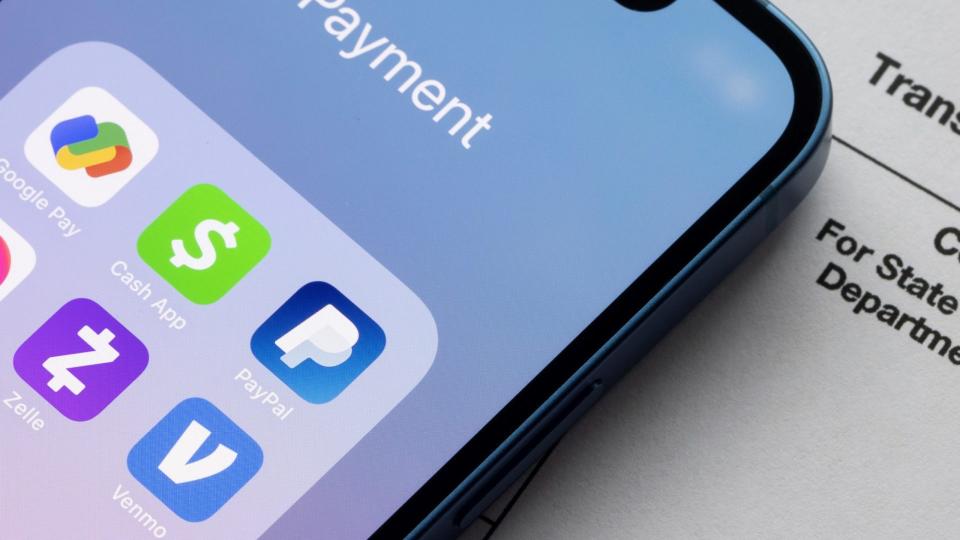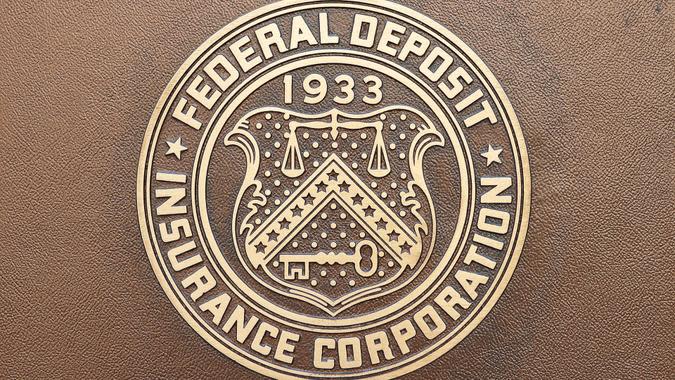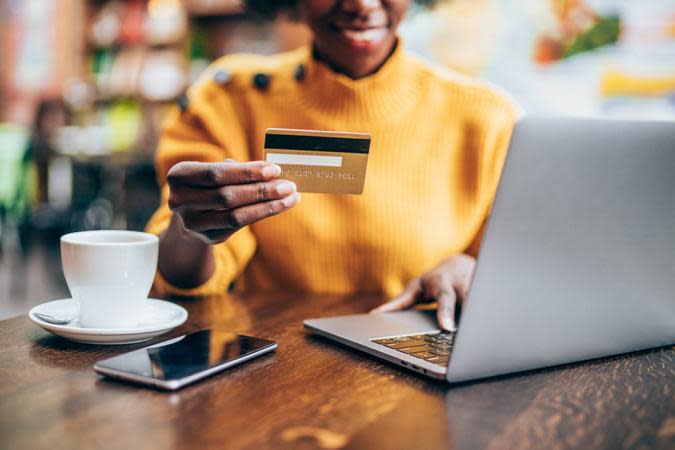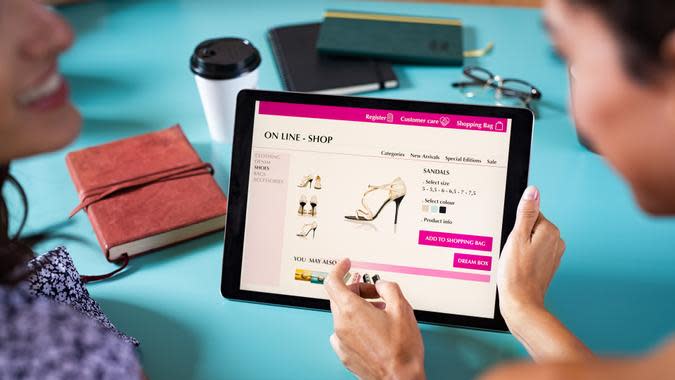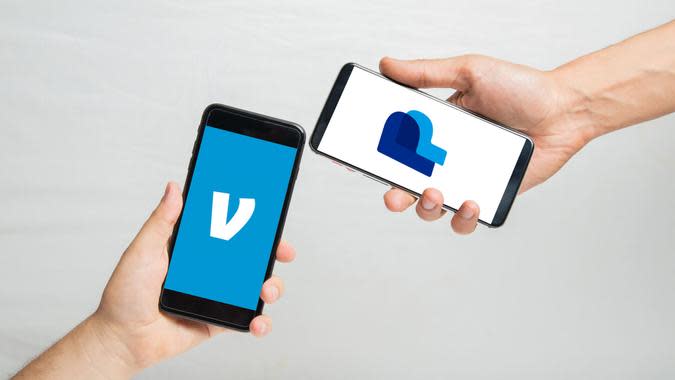In this era of online banking and mobile or contactless payments - when we're using less cash, in part due to fears in a pandemic - peer to peer payments (P2P) have become one of the most affordable and efficient ways to pay everyone from a business to your buddy. But are they as secure as most people perceive them to be?
See:Why Stealth Wealth Is the Best Way To Handle Your Money
Read: How To Guard Your Wealth From a Potential Banking Crisis With Gold
Zelle lets you send money directly between linked bank accounts free of charge, but unlike Venmo, will not "hold" money in your Zelle account. With Venmo, you don't need to stick to bank account-powered transactions; you can use credit cards for a fee.
It's important to know that any form of payment carries risk, digital or otherwise. Credit cards can be used fraudulently, even with EMV chip technology (that little metal square on your card that offers some security protection). People have been carrying out financial fraud since the days of "washing" checks to change the payee. But with 61.6 million users of Zelle in 2022 and 77.7 million users of Venmo, these two services are head in head in the battle for payments to our peers. Find out if either is safer than the other.
Unlike Zelle, Funds Stored in Venmo Are Not FDIC-Insured
Let's cut right to the chase: There is a clear security benefit to one service over the other, though it does not exactly come from the service's own policies. Zelle transfers money directly to and from FDIC-insured bank accounts, so you know the funds you send or receive are protected up to $250,000 per account.
Zelle Scams on Facebook Marketplace: How To Recognize and Avoid Them
Find: Facebook Marketplace Scams To Watch Out For in 2023
If you're the type of person who likes to leave funds sitting in your Venmo account for ease of transfer, and the service is hacked, you could lose that money. On the other hand, it's worth considering that Zelle could, theoretically, give hackers a gateway directly into all the money in your bank account. So you could find yourself temporarily out of funds.
At the end of the day, however, banks provide protection in this area so you're much more likely to get that money back, even if it takes a few days or weeks. But that doesn't mean Zelle is flawless when it comes to safety.
They Aren't Credit Cards - These Services May Not Protect Against Scams
These platforms were designed for sending money to family and friends, where there is mutual trust. Limiting your use of these services to their intended purpose can help protect you from scammers.
As their own FAQ points out, Venmo deals with plenty of scammers. One common scheme involves scammers connecting stolen credit cards to Venmo, using the card to transfer the money to a random user and then reaching out to that user saying they sent the funds mistakenly. The trusting victim sends the money back to the person - because transfer mistakes happen sometimes. By then, the thief has loaded their own credit card information onto their account, so the funds get transferred back onto their card.
Why Is My Cash App Payment Pending? 5 Reasons and Solutions
Whether you sent the money directly from your Venmo account or linked bank account, you should act as if you'll never see those funds again or at least in a timely manner, because neither Venmo nor Zelle protects against scammers.
In a statement, Zelle defined a scam as a transaction where the customer was knowingly involved in the transaction and gave the "ok" by authorizing a payment to be sent, but didn't receive what they were promised.
Neither Zelle Nor Venmo Offers Purchase Protection
Similarly, neither of these services offer purchase protection.
If you buy something online and Venmo the user the money, you can't make a claim through the payment service to get your money back. While reputable companies will usually offer a refund, if you're making a purchase through a small business that you aren't familiar with, or through a service involving strangers, like Facebook Marketplace, you may need to make a claim someday. Using a credit card can give you the purchase protection you want.
How to Protect Yourself
As both services make clear, it's smartest to send money to people you know: People like your friend who chipped in for pizza, your babysitter who lives next door, or your nephew running a fundraiser. Don't use it for businesses or for purchases from strangers off Craigslist or Facebook Marketplace.
Also, consider linking your Venmo account to a credit card. If you fall victim to fraud and used the credit card to pay through Venmo, your credit card company should cover the charges.
If you want the peace of mind of purchase protection, you could process transactions through PayPal. But don't use the "pay family and friends" feature to sidestep fees. Make sure to run it through as a purchase of goods and services unless the person you're paying is actually a friend or family remember.
Your Bank May Offer Its Own P2P Service
"Fast payments equals fast fraud," Frank McKenna, the chief fraud strategist for the security firm PointPredictive, stated to the New York Times in an October report. If you're truly concerned about fraud, but you want fast service, you can think about processing P2P transactions directly through your bank instead.
You can do this without Zelle at many banks, and if you're looking to switch, this list of the leading banks in America should give you plenty of secure, convenient options. In 2022, U.S. banks processed more than $448 billion in P2P transactions. Your money is FDIC-insured, and a bank's platform uses the same industry-standard security as any other online banking services the bank might offer.
If you want enhanced security and to know the money you keep in the account is FDIC-insured, consider P2P payments through your bank.
More From GOBankingRates
Why Stealth Wealth Is the Best Way To Handle Your Money
Got a Question About Money? Ask an Expert
How To Build Your Savings From Scratch
Financial Insight in Your Inbox: Sign Up for GBR's Daily Newsletter
Laura Beck contributed to the reporting of this article.
This story has been updated with language distinguishing between frauds and scams per a Zelle company spokesperson.
This article originally appeared on GOBankingRates.com: Venmo Is Riddled with Scams – Is Zelle Any Safer?
As a seasoned expert in the realm of digital finance and payment systems, I've delved deep into the nuances of online banking, mobile payments, and peer-to-peer (P2P) transactions. My expertise is not merely theoretical; it stems from a comprehensive understanding of the intricacies of these systems, coupled with a practical grasp gained through hands-on experience.
Now, let's break down the key concepts presented in the article:
1. Online Banking and Mobile Payments Trends
The article starts by acknowledging the prevalent shift towards online banking and mobile payments, accelerated by the reduced use of cash during the pandemic. It highlights the increasing popularity of P2P payments as an affordable and efficient method for various transactions.
2. Zelle and Venmo Overview
The article introduces Zelle and Venmo as prominent P2P payment services. Zelle facilitates direct, fee-free transfers between linked bank accounts, while Venmo offers versatility by allowing transactions via credit cards for a fee. Notably, Venmo does not hold money in a dedicated account, unlike Zelle.
3. Security Concerns in P2P Payments
The central question raised is whether P2P payments are as secure as commonly perceived. The article emphasizes the inherent risks associated with any form of payment, including credit card fraud and historical financial scams.
4. FDIC Insurance
A significant security distinction between Zelle and Venmo is highlighted. Zelle's direct transfers to and from FDIC-insured bank accounts provide a layer of protection, ensuring funds are safeguarded up to $250,000 per account. In contrast, funds stored in Venmo are not FDIC-insured, posing a potential risk if the service is compromised.
5. Scams and Fraud Prevention
The article discusses scams and fraud prevention measures for both Zelle and Venmo. It cautions users against leaving funds in Venmo accounts and notes the risk of potential hacking. While Zelle may offer bank protection, it is not deemed flawless in terms of safety.
6. Lack of Purchase Protection
Neither Zelle nor Venmo provides purchase protection, contrasting with credit cards that often offer such safeguards. Scenarios involving scams and fraudulent activities are outlined, advising users to exercise caution, especially when dealing with unfamiliar entities.
7. Recommendations for User Safety
Practical advice is provided for users to enhance their safety. This includes limiting P2P transactions to trusted contacts, considering credit card linkage for added protection, and exploring alternative platforms like PayPal for purchase protection.
8. Bank-Based P2P Transactions
The article suggests that processing P2P transactions directly through banks might offer enhanced security, emphasizing the significant volume of P2P transactions processed by U.S. banks in 2022 and the FDIC-insured nature of such transactions.
In conclusion, my expertise underscores the need for users to be informed and discerning when engaging in P2P transactions, considering the security features and limitations of platforms like Zelle and Venmo.
